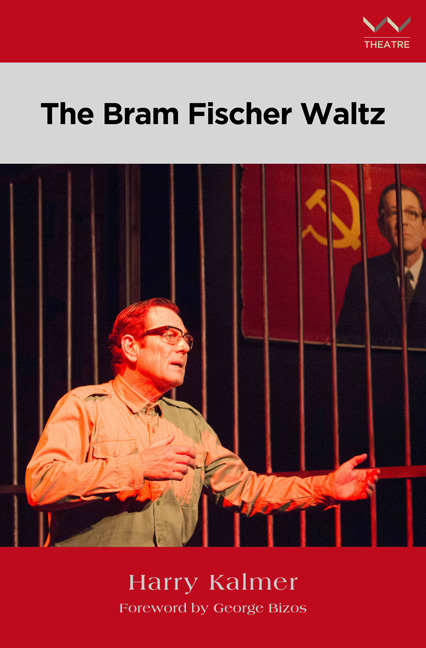Foreword: Who was Bram Fischer?
Published online by Cambridge University Press: 21 March 2018
Summary
The Bram Fischer Waltz, a one-man play written by Harry Kalmer, is worthy of being read and staged more often.
It dramatises Bram's experience in a tiny prison cell. He relates his childhood on an Orange Free State farm, playing with the children of the black workers; the freedom and love bestowed in him by his father, mother and grandparents, who played an important role in the battle against the British occupation of the Boer republics; and his father's role as counsel to those who opposed the surrender and the involvement of the Union in the First World War.
He remembers his student days in South Africa and at Oxford University, his visit to the Soviet Union and the influence that Marxism had on him in relation to the treatment of black people in South Africa.
He pays homage to Molly, talks about his time at the Johannesburg Bar, the Communist Party, the happy family of Ruth, Ilse and Paul in the Beaumont Street house, which was open to many of us, irrespectivee of the colour of our skins.
He speaks to himself about what he remembers, particularly about the happiness he had with Molly and his dreams of the times when they danced, but also blames himself for the unfortunate event that led to her death. He mourns the unfortunate, lonely death of their son Paul.
In reading the play or seeing it we should bear in mind what is generally known about Bram Fischer.
At the first Bram Fischer Memorial Lecture organised by the Legal Resources Centre, President Nelson Mandela said:
With that background he could not but have become an Afrikaner nationalist, as we became African nationalists thirty years later as a result of our oppression by whites. Both of us changed. Both of us rejected the notion that our political rights were to be determined by the colour of our skins. We embraced each other as comrades, as brothers, to fight for freedom for all in South Africa, to put an end to racism and exploitation.
Bram was a senior counsel in the Rivonia Trial. He was arrested and charged, with others, with being a member of the Communist Party.
- Type
- Chapter
- Information
- The Bram Fischer Waltz , pp. 1 - 4Publisher: Wits University PressPrint publication year: 2016



